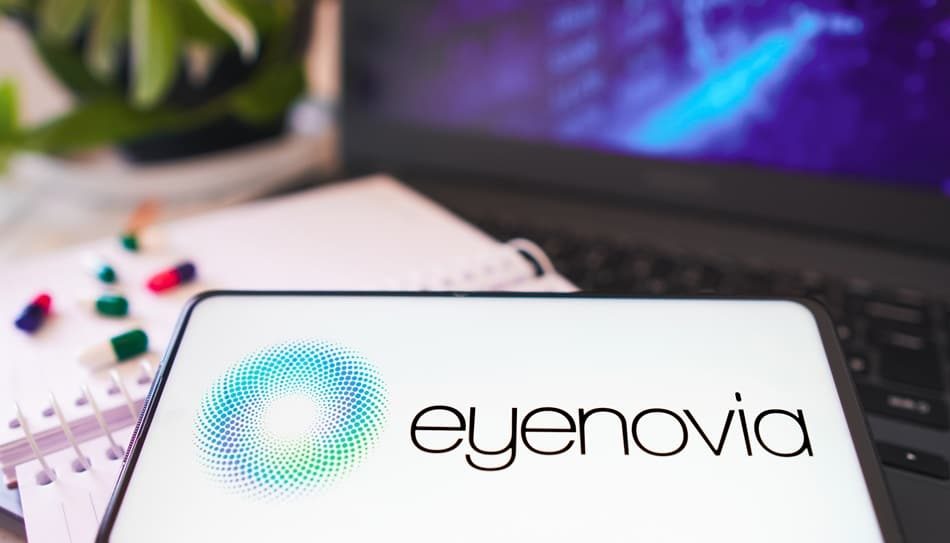Eyenovia, a biotech company specializing in eye care innovations, will discontinue a late-stage study of its experimental treatment for progressive myopia in children and lay off about half of its workforce.
The decision comes after an independent committee determined that the trial failed to show a significant difference in myopia progression between the treatment and placebo groups.
Failed Myopia Trial and Workforce Reductions
The experimental treatment involved a combination of low-dose atropine and Eyenovia’s proprietary drug-delivery device, Optejet.
The late-stage trial included 252 participants aged 3 to 12. It aimed to assess the safety and efficacy of the treatment in slowing the progression of nearsightedness in children.
However, the trial results showed no meaningful improvement in myopia progression compared to the placebo, leading Eyenovia to end the study.
In response to the disappointing trial outcomes, the company announced a significant restructuring plan, including a 50 percent reduction in its workforce.
The job cuts are part of Eyenovia’s efforts to streamline operations and refocus resources on other strategic initiatives.
Need Career Advice? Get employment skills advice at all levels of your career
Impact on Shares and Company Outlook
Following the announcement, Eyenovia’s shares plummeted nearly 70 percent by the close of trading on Friday, reflecting investor disappointment in the trial’s failure and the subsequent workforce reduction.
The sharp decline underscores the high stakes involved in the development of innovative drug-device combinations, particularly in the competitive field of ophthalmology.
Eyenovia’s CEO acknowledged the setback but emphasized the company’s commitment to evaluating its strategic options.
A statement from the company said:
“While we are disappointed by the trial results, we remain focused on leveraging our core technology and exploring potential partnerships or business combinations.”
Looking for a job? Visit www.whatjobs.com today
The Role of Optejet in Eyenovia’s Strategy
Optejet, Eyenovia’s innovative drug-delivery device, played a central role in the discontinued myopia study.
Unlike conventional eyedroppers, Optejet delivers medication in precise microdoses, reducing the risk of overdose and improving patient compliance.
Despite the failure of the myopia trial, Eyenovia remains optimistic about the potential of Optejet and plans to continue developing its second-generation version.
The company’s remaining staff will now shift their focus towards advancing the next iteration of Optejet, which could have broader applications in ophthalmology, including treatments for other eye conditions.
Hiring? Post jobs for free with WhatJobs
Reviewing Strategic Options: What’s Next for Eyenovia?
With the end of the myopia study and a significant reduction in workforce, Eyenovia has announced plans to conduct a thorough review of its business strategy.
The company is exploring several potential paths forward, including a business combination, reverse merger, or the sale of assets.
This strategic review is expected to guide the company’s future direction as it looks to recover from the recent setbacks and chart a new course.
The company said:
“We are actively evaluating all available options to maximize value for our shareholders and continue advancing our core technologies.”
Previous Successes and Regulatory Approvals
While the failure of the myopia trial is a major setback, Eyenovia has had recent successes that offer a glimmer of hope for its future prospects.
Earlier this year, the company gained U.S. Food and Drug Administration (FDA) approval for its eye drops designed to reduce inflammation and pain following eye surgery.
This approval was a key milestone for Eyenovia, showcasing the potential of its innovative drug-delivery technology.
The company’s focus on precision drug delivery with Optejet has been a distinguishing feature in its product pipeline, and the development of a second-generation device remains a priority.
The Broader Landscape of Myopia Treatments
The halted myopia trial highlights the challenges facing drug developers in the ophthalmology space.
Myopia, or nearsightedness, is a growing global concern, particularly among children, with rates of progressive myopia increasing worldwide.
Low-dose atropine has shown promise in previous studies as a potential treatment for slowing myopia progression, but achieving consistent, significant results in large-scale trials has proven difficult.
Eyenovia’s failure to demonstrate efficacy in its late-stage trial may signal broader challenges in developing effective, scalable treatments for progressive myopia, underscoring the need for continued innovation in this field.
Looking Forward: A Strategic Pivot for Eyenovia
As Eyenovia reassesses its strategy, the company’s focus will shift towards refining its core technology and exploring new market opportunities.
The second-generation Optejet device could play a critical role in this pivot, offering a platform for the precise delivery of a variety of ophthalmic drugs.
While the end of the myopia trial and the resulting layoffs are a setback, Eyenovia’s leadership remains optimistic about the company’s long-term potential.
The strategic review process will likely determine whether the company pursues a partnership, a merger, or other avenues to leverage its innovative technology and regain investor confidence.
The Road Ahead: Challenges and Opportunities
The coming months will be crucial for Eyenovia as it navigates its restructuring and strategic review.
The company’s ability to successfully pivot and capitalize on its existing technology will be key to overcoming the current challenges and securing a path to growth.
Investors and industry analysts will be closely watching Eyenovia’s next moves as it seeks to rebound from the trial’s failure and lay the groundwork for future success.




